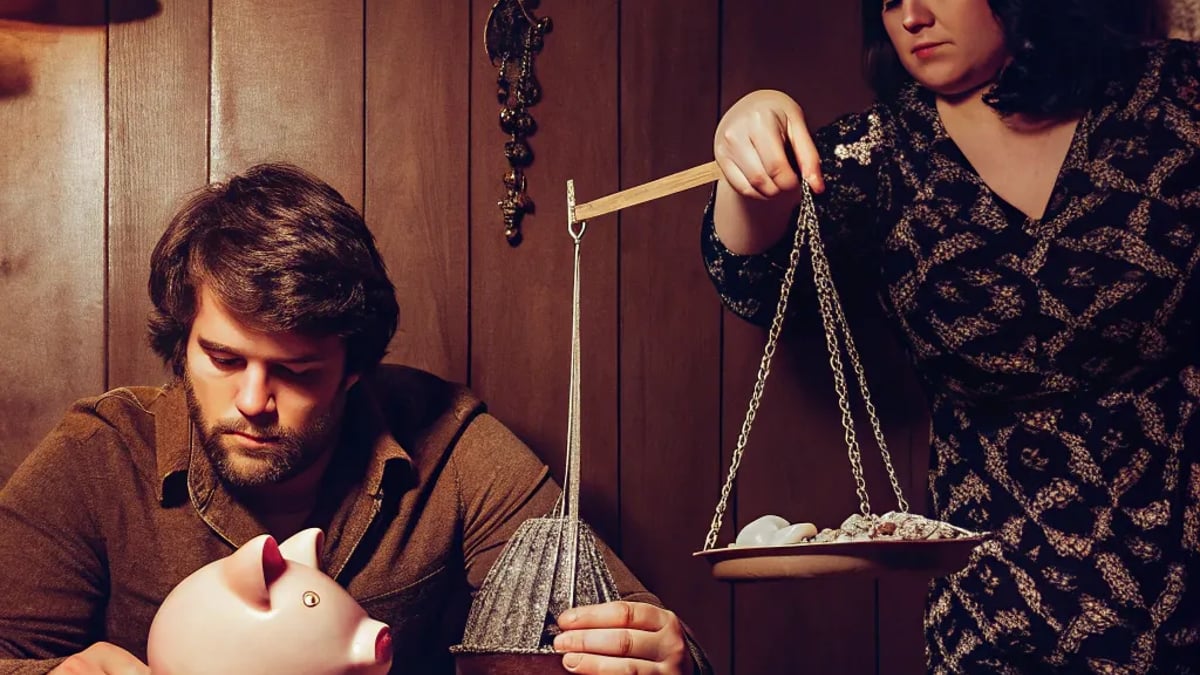
Being smart with money doesn't mean living a life of deprivation. The line between frugal and cheap is often blurry, but understanding the difference can transform how you approach saving while maintaining quality of life. I've spent years refining my own approach to thoughtful spending, and I'm sharing what I've learned about balancing financial wisdom with life enjoyment.
Understanding the Frugal Mindset vs. Being Cheap
There's a world of difference between being frugal and being cheap, though they're often confused. I remember attending a friend's dinner party where one guest brought the cheapest wine possible—it was practically vinegar—while another brought a reasonably priced bottle she'd found on sale from a quality vineyard. Both spent roughly the same amount, but the approaches couldn't have been more different.
Frugality is about maximizing value and being intentional with spending. It means making thoughtful choices that align with your priorities and values. Cheapness, on the other hand, focuses solely on spending the least amount possible, often at the expense of quality, relationships, and sometimes even long-term financial benefits.
As financial writer Ramit Sethi notes on his I Will Teach You To Be Rich blog, "Being cheap is about spending less. Being frugal is about prioritizing your spending so that you can have more of the things you really care about."

Key Differences Between Frugal and Cheap Behaviors
| Frugal Behavior | Cheap Behavior |
|---|---|
| Researches purchases to find best value | Always buys the lowest-priced option regardless of quality |
| Saves on non-priorities to spend on what matters | Avoids spending money in all categories |
| Considers long-term costs and benefits | Focuses only on immediate price |
| Tips appropriately at restaurants | Undertips or finds ways to avoid tipping |
| Shares resources generously | Hoards resources, even from friends/family |
Practical Ways to Be Frugal Without Sacrificing Quality
Strategic Grocery Shopping
One area where I've found significant savings without compromise is grocery shopping. Last month, I saved nearly $200 through strategic shopping while still eating well.
Smart grocery strategies include:

- Meal planning based on what's on sale that week
- Buying seasonal produce when it's abundant and inexpensive
- Shopping at different stores for their best deals (I get staples at Aldi, specialty items at Trader Joe's)
- Using a freezer effectively for batch cooking and preserving deals
According to a study by the Natural Resources Defense Council, the average American family throws away about $1,500 worth of food yearly. Reducing waste through better planning is both frugal and environmentally responsible.
The Buy-It-For-Life Approach
Sometimes spending more initially saves money in the long run. This philosophy, often called "buy it for life," focuses on purchasing quality items that last years or decades rather than cheap versions that need frequent replacement.
A personal example: After going through three $20 blenders in two years, I invested in a $120 model five years ago that's still going strong. That's a net savings of $180 if I'd continued replacing the cheap ones.
The r/BuyItForLife subreddit offers excellent recommendations for durable products across categories. Users share actual experiences with items that have stood the test of time, making it easier to identify truly worthwhile investments.
Embrace the Second-Hand Economy
The stigma around used items has diminished significantly, and the quality of available second-hand goods has never been better. I've furnished much of my home with second-hand finds that look practically new.
Frugal second-hand strategies:
- Check Facebook Marketplace and local Buy Nothing groups for free or low-cost items
- Visit thrift stores in affluent neighborhoods for higher-quality donations
- Use platforms like ThredUp or Poshmark for quality used clothing
- Consider "open box" or refurbished electronics with warranties
One Reddit user in the r/Frugal community shared how they furnished their entire apartment with quality second-hand furniture for under $1,000, saving an estimated $5,000 compared to buying new.
How Can I Save Money Without Feeling Deprived?
This is perhaps the most common question I hear. The key lies in selective frugality—being intentional about where you cut back and where you spend freely.
Start by identifying your personal values and priorities. For me, travel and quality food are non-negotiables, so I happily spend there while cutting back on clothing and entertainment. My neighbor takes the opposite approach—she's a fashion enthusiast who saves on travel by being a master of the staycation.
Some effective strategies for painless saving include:
- The 24-hour rule: For non-essential purchases over a certain amount (I use $50), wait 24 hours before buying. Often, the impulse passes.
- Subscription audit: Review all recurring payments quarterly. I recently discovered I was still paying for three subscriptions I rarely used, saving $45 monthly by canceling.
- Energy efficiency: Small investments in LED bulbs, programmable thermostats, and proper insulation can reduce utility bills without lifestyle changes. My electric bill dropped by 22% after these simple changes.
- Social swaps: Instead of expensive dinners out, I've started hosting potluck dinner parties. The food is often better, and the company more relaxed. As noted on Six Figures Under, you don't have to sacrifice social connections to save money.
Creative Frugality That Enhances Life
The most satisfying frugal choices often improve life quality while saving money. These win-win scenarios are worth seeking out.
Experiential Frugality
Travel is notoriously expensive, but creative approaches can dramatically reduce costs. When planning a family trip to New York City last year, I discovered numerous ways to experience the city affordably.
According to Penniless Parenting, families can enjoy NYC on a budget by using strategies like:
- Visiting during shoulder season (April-May or September-October)
- Utilizing free museum days and pay-what-you-wish admissions
- Exploring free attractions like Central Park and the High Line
- Using public transportation instead of taxis
- Staying in accommodations in Brooklyn or Queens instead of Manhattan
These approaches don't diminish the experience—they often enhance it by encouraging more authentic interactions with the city and its residents.
Skill Development as Frugality
Learning to do things yourself isn't just economical—it's often more satisfying. Basic skills like simple home repairs, cooking, and clothing maintenance can save thousands yearly.
I recently learned basic bike maintenance through free YouTube tutorials. What would have been a $75 tune-up became a $15 investment in tools and a satisfying Saturday afternoon project. The knowledge will save me hundreds over the years.
As Mr. Money Mustache explains on his blog, "The concept of practicing frugality without sacrifice" involves finding smart ways to be thrifty "WITHOUT giving up any important features of one's lifestyle."
When Being "Cheap" Makes Sense
Sometimes, what might appear "cheap" is actually rational. Generic medications, store-brand staples, and no-frills services for non-priorities can be sensible choices.
The key is intentionality. If something truly doesn't matter to you, minimizing cost makes perfect sense. I couldn't care less about paper towels, so I buy the store brand without hesitation. But for coffee—something I enjoy daily—I spend for quality beans.
Building a Sustainable Frugal Lifestyle
Sustainable frugality is about the long game. Extreme measures often lead to burnout and splurges that undo your progress. Instead, aim for consistent, moderate frugality aligned with your values.
One Reddit user in r/Frugal shared how they saved for a house down payment not through dramatic sacrifices but through consistent small choices over three years. They still took vacations and enjoyed restaurants occasionally, but made thoughtful choices that aligned with their bigger goal.
The Bottom Line
The distinction between frugal and cheap isn't about how much you spend—it's about the thought process behind your spending. Frugality is a mindful approach to money that respects both your financial goals and your quality of life.
By focusing on value rather than merely price, considering long-term costs, and aligning spending with personal priorities, you can build wealth without feeling deprived. The most successful frugal people aren't those who spend the least—they're those who spend most wisely.
Disclaimer: This article is for informational purposes only and does not constitute financial advice. Financial strategies should be tailored to your personal situation, goals, and needs.
Tags

About Elliot W. Ramsey the Author
Elliot W. Ramsey is a financial-literacy expert with over 15 years of experience empowering individuals to cultivate healthy financial habits and manage personal budgets. He is renowned for his ability to simplify complex financial concepts, making them accessible to audiences of all ages.
Recommended Articles
2026’s Most Talked-About Glasses for Women Over 60
Discover the latest eyewear trends for women over 60 in 2026, featuring bold frames, vibrant colors, and health-conscious designs.
The 2026 Senior Walking Aids Experts Recommend for Safety and Comfort
Explore expert-recommended walking aids for seniors in 2026, ensuring safety and comfort while enhancing mobility and independence.
How Rent-to-Own Homes Can Help You Build Equity Faster
Discover how rent-to-own homes enable faster equity building, providing a unique pathway to homeownership without immediate purchasing pressure.
Mortgage Relief Grants You May Qualify for in 2026
Explore available mortgage relief grants for 2026. Find out how to qualify for financial support to ease your home-related challenges.
Grants That Help Single Moms Buy Homes in 2026
Discover grants for single moms to buy homes in 2026. Learn about essential programs designed to ease the journey to homeownership.




